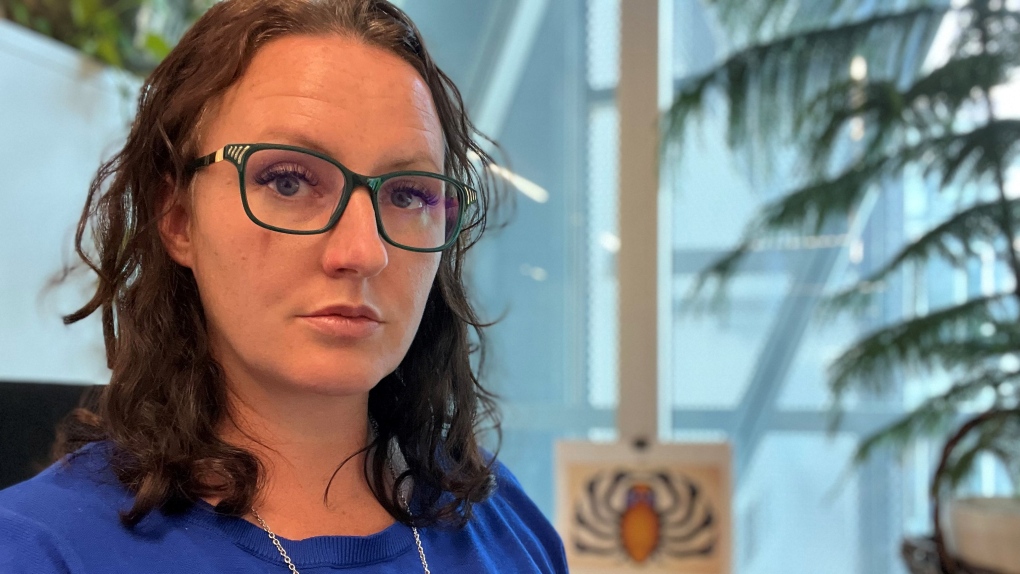Canada has performed nine medically assisted deaths among prisoners in the last seven years, more than any other country that tracks and records such data.
The number of federal prisoners requesting medically assistance in dying (MAID) in Canada has also increased, with 27 asking for permission to die between June 2016, when the legislation came into effect, and March 31 this year, according to information provided by Correctional Services of Canada (CSC) following an Access to Information Act request.
Only three other countries -- Switzerland, Belgium and Spain -- have publicly acknowledged one euthanasia death each for a prisoner. Two of them were performed in February this year. The other was in 2022.
Jessica Shaw, an associate professor of social work at the University of Calgary who has been studying assisted death in prisons and submitted the access to information request, said she is worried about the lack of transparency in reporting cases and how decisions are made.
“Canada is the leading provider of assisted death for prisoners," she said. “It would appear to me that there's a very different process when it comes to people who are dying through assisted death in prison than it is for… the general population of Canada.”
According to the data, the number of inmates requesting MAID is up from five in 2018; however, the data is heavily redacted.
The document also shows that a third of all requests for MAID from prisoners are approved. The rate of approvals is significantly lower than the 81 per cent approval rate in the general population.
No other information was provided on the medical reasons for the MAID requests, or why some requests were rejected.
“For privacy reasons, we are currently unable to provide a further breakdown of these numbers,” a spokesperson for CSC told CTV News in an emailed statement on April 26.
Shaw described the lack of details as “secretive in many ways.”
"We worry about what's happening, (and) what's not happening, behind bars and behind closed doors," she added.
The lack of transparency also troubles Ivan Zinger, the correctional investigator of Canada. Zinger says his agency has a mandate to investigate all deaths of federal prisoners.
However, MAID-related deaths are not included in these investigations, he said, despite multiple recommendations from his office to open access to information to allow investigators to review cases.
"For some extraordinary reason, Corrections (Services Canada) was able to get an exemption of that requirement," said Zinger told CTV News. "We keep raising (the matter), but we don't have data and they don't have the obligation to provide us with data. And that's the problem."
MENTAL ILLNESS AND MAID IN PRISON
In 2020, Canada's federal prisons housed an estimated 14,000 men and women, with a further 9,000 on parole. Studies show that a growing number of inmates are aged over 50, putting them at risk of cancer and other diseases that might qualify them for medically assisted death.
Another concern looms for Zinger and Shaw, as the criteria for applying for MAID will likely expand in March of next year to include mental illness as a sole reason for requesting assisted death.
Zinger says data from CSC indicates 75 per cent of those imprisoned federally have a current mental health diagnosis, while other studies show prison life itself can worsen mental health.
"If the provisions are extended to include mental illness, there could be a lot more people that become eligible," Zinger said, calling for more transparency in discussing MAID among prisoners. "I believe that (CSC) should be reporting it in an open way...so that we can track it better and we can ensure that how it's being provided is in sync with the legislation and human dignity.”
Canada is the only country in the world that has approved medically assisted death as a right for prisoners, with guidelines on how it is to be provided. Requests from inmates first go to a prison official, who then decides if the prisoner can proceed with the application with two outside medical assessors. But unlike applications involving the general public, prisoners cannot choose the assessor or ask for a second opinion.
Shaw is concerned that some of the procedures, including having guards present during MAID-related appointments, may pressure prisoners into a decision.
"We really need to attend to whether or not someone can adequately consent when they're being watched by a prison guard, for example... or whether anyone has free choice when so many of their rights have been taken away," she added.
 Jessica Shaw, an associate professor of social work at the University of Calgary. (submitted by Jessica Shaw)
Jessica Shaw, an associate professor of social work at the University of Calgary. (submitted by Jessica Shaw)
Shaw spent time in prisons interviewing inmates about assisted death prior to the pandemic for her research. She says some expressed fears about raising the issue of MAID, worried they would be labelled suicidal by prison staff, which they claimed would lead to them placed in solitary confinement for their own safety.
Her other concern is whether the guidelines, and training of assessors, will adequately assess whether inmates who request MAID are, in fact, attempting to escape prison life.
In a study she co-authored in 2021, Shaw spoke to one inmate, “James,” whose identity was protected as they were advocating for MAID as a way out of their life sentence.
"There’s over 400 dangerous offenders in Canada," she says "James" told her. "So why not give us another option? Instead of having the taxpayers pay millions of dollars (for our prison time), why not just give us that option to go to sleep?"
A study in 2015 from Belgium highlighted a similar ethical problem.
Researchers reported on 17 requests for euthanasia made by long-term prisoners who were “motivated by the constant and unbearable psychological suffering of detention."
The study reported that all of the requests were eventually declined, with authors warning that it is important for people in detention see assisted death as an "exception to be used with great caution."
"Prison itself may be a contributing factor to decisions about wanting to end your life, right? That's a challenge," said Catherine Latimer, executive director of the John Howard society, a not-for-profit agency promoting what its website calls “humanity in justice.”
She says her society believes prisoners have a right to the same services as all Canadians, including MAID. However, she has concerns as to whether medical services offered to prisoners are equal to those outside of prison, because they are constrained by security and cost issues.
"My concern is: we should be very vigilant about making sure that people who have mental illnesses in prison are getting the assistance that they need," she added.
Dr. Lilian Thorpe is one of the first MAID providers to speak publicly about offering assisted death for prisoners. She is a geriatric psychiatrist and a professor in the department of community health, and epidemiology and psychiatry, in Saskatoon.
One inmate she assisted was allowed out of prison early and admitted to a hospital facility, where he spent his final hours with family before getting a medically assisted death.
"(They) had a lot of contact with family, that's what they wanted. They wanted out of prison. And, you know, they were bed bound and very sick. But they were able to die in the way that they wanted, which is with the family there," she told CTV News.
According to the access to information data Shaw obtained, of the eight cases of MAID listed at the time of her report, seven were performed outside of prisons.
Another inmate with advanced stage cancer was given MAID in prison. Thorpe, who was also the physician on this case, said it was the prisoner's wish to die behind bars.
"He did not want to be discharged because he had been in corrections basically all his adult life and he wanted to be with people that he knew, and his closest supports are actually in that facility," she said.
However, there are other experiences that worry Zinger.
In one of the early cases of MAID, detailed in a federal report, one inmate was “shackled to the bed" with officers nearby as the procedure occurred.
Zinger supports the idea that all palliative and MAID should be treated out in the community, as those who are ill and dying are of little risk to the public.
"The best way of dealing with this is to try to get people out earlier…where care can be provided in a better setting than inside of penitentiary or even in a hospital with correctional staff at the door," he added.
Correctional Services of Canada told CTV News in an email that it “is responsive to the needs of offenders, including quality and compassionate palliative and end of life care."
Shaw, meanwhile, intends to keep tracking MAID developments globally and asking questions of Canada’s processes in this emerging ethical discussion.










































